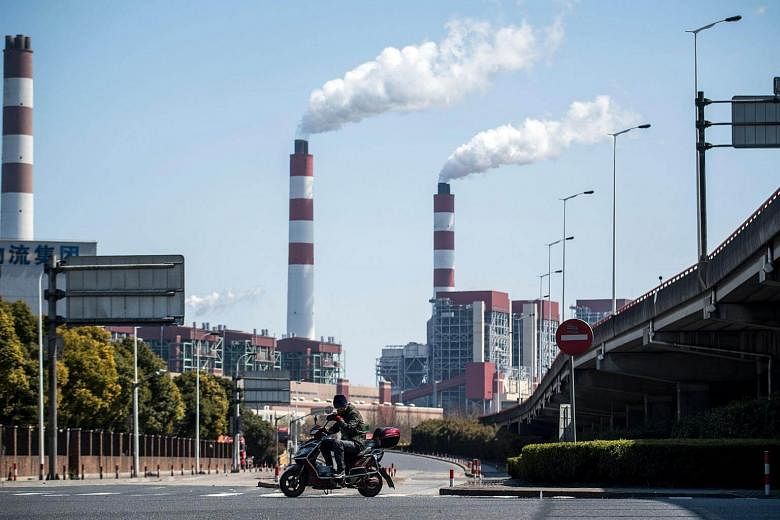China has done well in slowing its carbon emissions growth and its actions could be an example for countries participating in the Belt and Road Initiative (BRI) projects, Professor Nicholas Stern, the British economist and advocate for combating climate change, has said.
Echoing this hope that the BRI could be an opportunity for mitigating climate change, Columbia University professor Jeffrey Sachs said the world's largest infrastructure programme would make history if it is environmentally sustainable.
Speaking at the annual China Development Forum in Beijing yesterday, Prof Stern noted that China had decelerated its carbon emissions during its 12th five-year plan in 2011-2015 and plateaued emissions in the current 13th plan of 2015-2020. He expects that in the 14th plan, its emissions would go "strongly down".
He further noted that the BRI countries together are three times the size of China, with income and emissions per capita roughly half of China's, but in 20 years' time, their income and emissions would be like China's today.
He concluded that the BRI had to be about change and that "China is showing them how to do that".
Speaking later to The Sunday Times, Prof Stern said China is setting a very good example in terms of changing the way it does things.
"The kind of example China is showing inside should be applied outside in its partnerships with other countries," he added.
Noting that China has influence, he said it can be a good influence "provided it applied the same kind of standards outside China as inside China".
"I'm optimistic that this will happen," he added.
Chinese President Xi Jinping had, in 2013, proposed the BRI to build infrastructure such as roads, railways, ports and industrial hubs along modern versions of the ancient land and sea trade routes linking China to Africa and Europe.
More than 60 countries, many of them developing nations, are participating in the ambitious project.
During another session on the BRI at the forum, Prof Sachs said the massive project would be remembered for whether or not it was done with environmental sustainability in mind.
"If it is more of the same, building more of fossil fuel-based economy and building more of a materials-based economy, it will go down in history as a disaster," he said.
However, if it is a progenitor of 21st century infrastructure, of clean transport, zero-carbon energy and smart, interconnected networks, "then it will not only make history but also secure a sustainable development future", added Prof Sachs.
As if in answer to the two academics, Ms Jin Qi, chairman of China's Silk Road Fund, which was set up specifically to fund BRI projects, gave an example of a project in Dubai to build a clean coal power plant.
She noted that its environmental standards were in line with the International Finance Corporation's rigorous standards of emissions.
Goh Sui Noi


